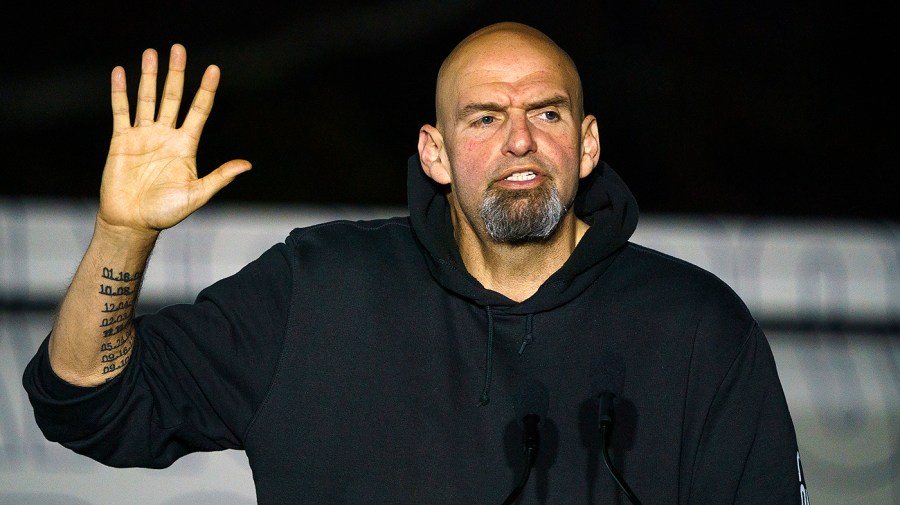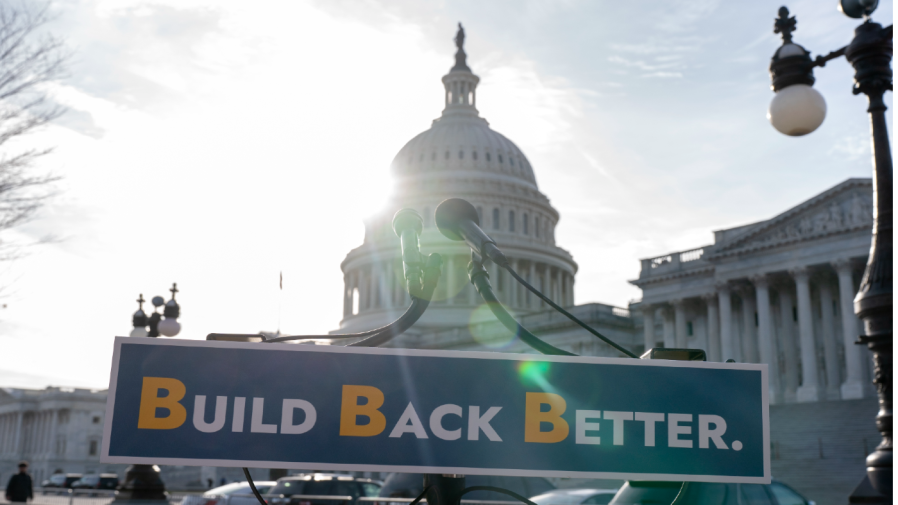Progressives eye new Congress emboldened by midterm wins
Progressives have finally found reason to celebrate. Now they just have to convince other Democrats to come to the party.
For months, moderates picked off primary challengers from the left ahead of the midterms, leaving just a handful of liberal candidates to compete against Republicans this fall.
But after a surprisingly strong night last Tuesday for Democrats, progressives are already suggesting ways they’d like to see members of Congress use their expanded bench — even as control of both chambers still hangs in the balance.
“It’s time for Democrats, especially progressive Democrats, to take attendance,” said Michael Starr Hopkins, a Democratic operative who’s been outspoken about what he sees as the party’s shortcomings. “They have power and they should use it to help their constituents. Period.”
“There’s no question that this will be the most progressive Democratic caucus in decades,” Rep. Pramila Jayapal (D-Wash.), the chair of the Congressional Progressive Caucus, said during a press conference on Sunday introducing new members of the group.

Jayapal speaks during a news conference with Congressional Progressive Caucus members at AFL-CIO headquarters in Washington on Nov. 13, 2022.
Voters delivered victories to progressives in districts across the country, including in Texas, Illinois, Michigan, Florida, Hawaii, California, Pennsylvania and Vermont, creating a geographically diverse picture of where left-wing Democrats can win.
Jayapal told reporters on Sunday that of the 18 candidates the Progressive caucus endorsed this cycle, 15 have won their races.
Among the most closely watched races, former Austin city council member Greg Casar won his election against Dan McQueen in Texas’s 35th District, while Delia Ramirez won in Illinois’s 3rd District.
Twenty-five-year-old progressive activist Maxwell Alejandro Frost won in Florida, putting him on track to become the first Gen Z member of Congress, while Summer Lee emerged from an unexpectedly stiff GOP challenge for a Pittsburgh-area seat.
The Congressional Progressive Caucus, which counts dozens of members in its ranks, will soon get several more lieutenants. And progressive Democrats are hoping the group’s gains will mean an emboldened liberal wing that isn’t afraid to flex its muscle within the party.
“Americans deserve to know where members of Congress stand on issues like protecting Social Security, access to affordable health care and body autonomy,” said Starr Hopkins. “Voters deserve to know which members of Congress are using their positions to lobby for fancy jobs on K Street and which members wake up every morning determined to better the lives of their constituents.”
“Progressives aren’t beholden to the establishment and certainly shouldn’t concern themselves with whether or not they are liked by the elite social circles that pollute D.C.,” he added.
For their part, moderate Democrats still see reasons to be skeptical of the left’s longevity and prominence. They note liberals did well mostly in places that President Biden had already won and cemented a blue footprint.
For example, Frost defeated his GOP opponent by nearly 20 points to represent an area in and around Orlando, but did so in a district Biden won by 25 points in 2020.
“I don’t know what they’re claiming credit for this cycle, but Greg Cesar’s TX-35 is Biden +45, Summer Lee’s PA-12 is Biden +20,” said Matt Bennett, who co-founded the centrist group Third Way.
While moderate Democrats were relieved to see Pennsylvania Sen.-elect John Fetterman (D) ascend to the upper chamber, some say centrists were the true heroes of the cycle, with their team overperforming more than many progressives.

Fetterman speaks during a rally for Governor-elect Josh Shapiro at Bucks County Community College in Newtown, Pa., on November 6, 2022.
“In the Blue Wall, mainstream candidates won their statewide races or made impossible races close,” Bennett said. “But anyone who could be tagged as a ‘woke socialist’ — unfairly, but potently — lost.”
While control of the Senate remains up in the air, Republicans are still favored to take the House, though by a small margin. And while progressives will have larger numbers come January, it’s unclear the level of influence the new lawmakers will have and how they’ll choose to wield their power.
When they were in the majority, liberals often rallied together to push Biden and fellow members to the left on key legislation — often with mixed success. They had a big hand in what ultimately became an executive action to forgive student loan debt, for example, and helped steer the success of the Inflation Reduction Act.
Some progressives are hopeful incoming members will take the themes they campaigned on to rally additional support on Capitol Hill, even if they’re not in the majority.
“The progressives in the House that are now coming in, they do have — I wouldn’t call it a mandate — but maybe a fist bump from the American people,” said Douglas Wilson, a Democratic operative based in Charlotte, N.C.
Progressives — including incoming members — are taking that boost of confidence and running with it, eyeing a number of issues on their wishlists and arguing Democrats’ better-than-expected midterm performance can help carry legislation.
“There are lots of issues that we’re pushing for,” Lee told reporters on Sunday when asked what she will be advocating for in the first 100 days of the new Congress. She listed environmental racism, policing and a living wage.
“There’s a lot of places where you can start,” she said after the Progressive Caucus press conference, adding “So I guess I’ll figure out, kind of, where to take the first bite.”
Advocates outside the Capitol also said there’s plenty of work to be done.
“No matter what, progressives and Democrats must continue fighting for bold action on climate, even more significant student debt relief, good jobs, and policy that voters can see and feel in their lives,” said Varshini Prakash, who leads the Sunrise Movement as executive director.
“Look at Biden’s poll numbers from the spring to now. Young people were not excited to vote months ago, and after he passed a climate bill, a gun bill and canceled student loans, they improved significantly — and led to nearly record breaking turnout,” Prakash added. “Clearly, when Democrats fight for those things, voters respond.”
One major challenge facing progressives is at the negotiation table, after liberals lost out of much of what they wanted in prior caucus debates, including around the massive social safety net and climate package known as Build Back Better.

A sign that reads “Build Back Better” is displayed before a news conference on Dec. 15, 2021, on Capitol Hill in Washington.
They also already saw the limits of some of their priorities, with a big one stifled in court. On Thursday, a Trump-appointed federal judge ruled against Biden’s order on student loans, providing a major blow to one of progressives’ biggest successes.
Wilson, the North Carolina-based Democratic operative, said that while progressive policies usually poll well with the public, liberals need to be careful about how they craft their messaging inside Congress.
The influx of infighting over parts of Biden’s agenda created confusion at times around what Democrats stood for.
“I think if we can change the way we articulate those policies, we will continue to win elections probably at a larger portion [rather than] just these small tight races,” he said.
Copyright 2025 Nexstar Media, Inc. All rights reserved. This material may not be published, broadcast, rewritten, or redistributed. regular














